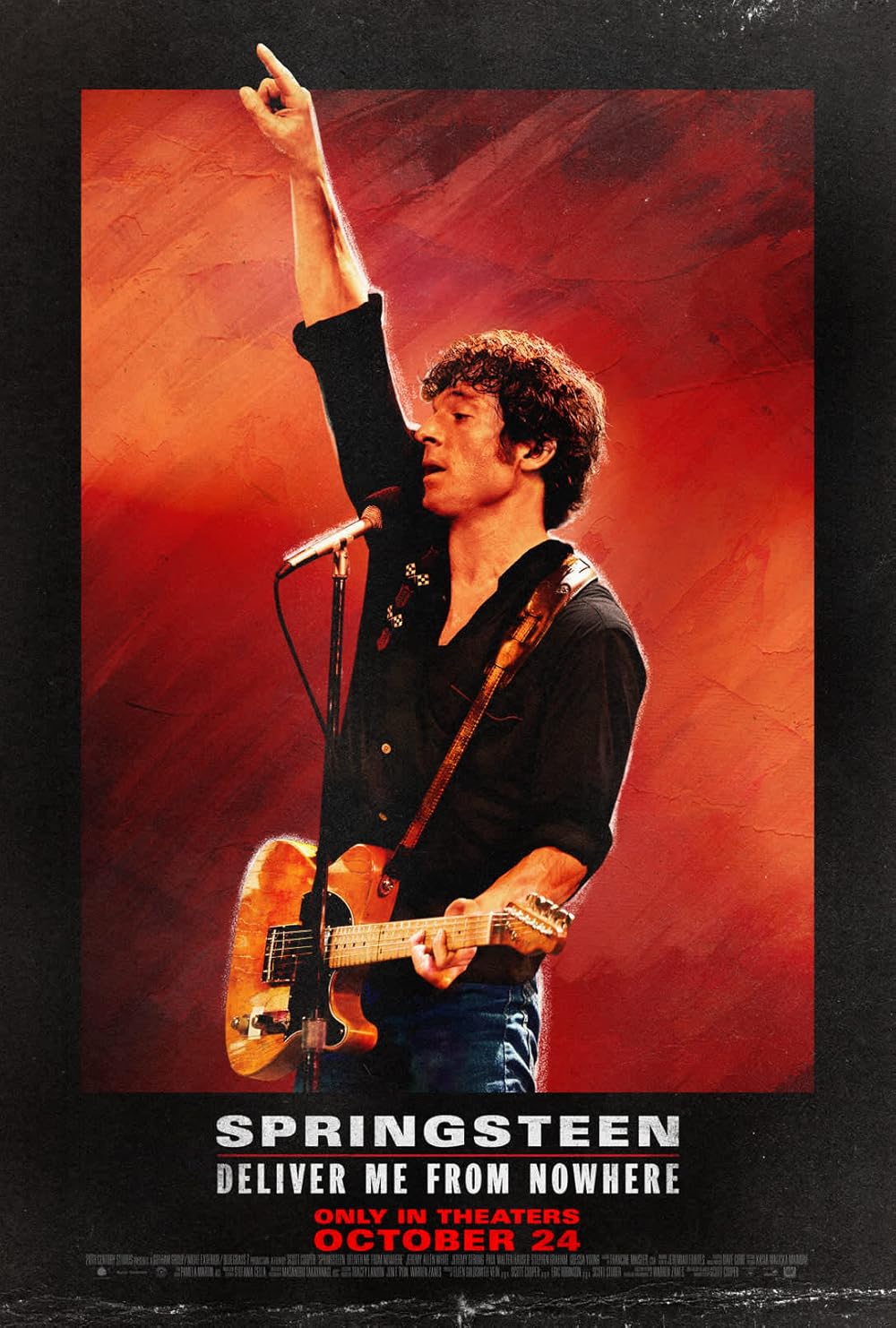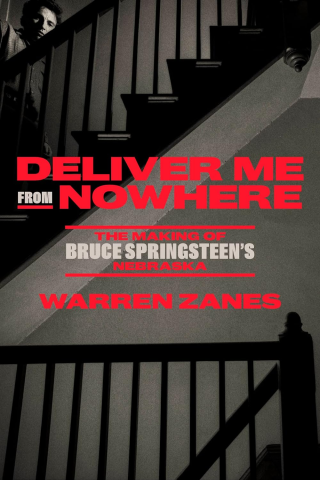Released as is—in those spare acoustic arrangements, in defiantly uncommercial packaging—Nebraska would be Springsteen’s least characteristic and most critically lauded album, a collection of stripped-down ballads about desperate working-class characters that stood out like a mile marker on an empty highway. “Nebraska is the most punk thing Bruce ever did,” Cooper told The New York Times, “not in sound, but in spirit”—a frustrating statement because Nebraska actually does sound like the only punk song heard in the film, Suicide’s “Frankie Teardrop.” That track blew Springsteen’s mind when he was making his record, and it has a similarly hollowed-out and reverb-haunted soundscape, in which a rock-and-roll whoop sounds like a distant banshee wail. Nebraska is the only time Springsteen made something that sounded so lo-fi and eerie, but that spirit infuses the rest of his work—to the extent that the subject of Suicide’s song, a flailing factory grunt who got married too young, could be a figure from any of Springsteen’s albums.
Cooper’s screenplay is full of these missed connections. The film seems interested in the creative process—one of Landau’s critical riffs concerns the elusive Proustian quality of tape hiss—but largely skips over the unsuccessful full-band recording sessions that convinced Springsteen to release the demos as they were. What it gives us in the studio instead is “Born in the U.S.A.,” also originally composed and recorded as an acoustic demo during the Nebraska period, with White muscling his way through the definitive arena-rock version—a shimmering anthem that was successfully arranged for the band based on Springsteen’s demos, but was eventually held back for his 1984 album of the same name.
This crowd-pleasing break from the moodiness of Nebraska is understandable in the film’s context. Just as music documentaries must necessarily involve, and often directly originate from, the holders of a given artist’s publishing rights, the biopic is likewise an investment in a back catalog. Last year’s Bob Dylan biopic, A Complete Unknown, was preceded by a blockbuster transaction in which Dylan’s catalog was sold to Universal for more than $300 million; similarly, Springsteen’s catalog got about $550 million from Sony Music Entertainment, in 2021. It’s perhaps no surprise, then, that the artist biopic tends to be a Great Man narrative, a tacit acknowledgment that the musician at its center is also very much a brand. A Complete Unknown mitigated the tendency to focus entirely on personal turmoil with a cryptic lead performance by Timothée Chalamet that mystified genius more than humanizing it, but both films struggle to imagine where art might come from, if not real life.


